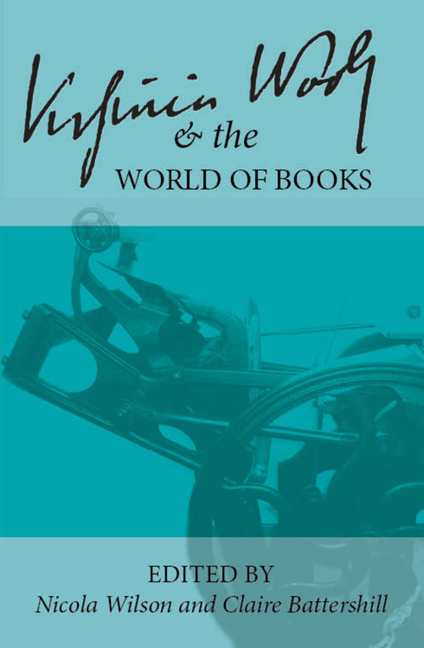 Virginia Woolf and the World of Books
Virginia Woolf and the World of Books Book contents
- Frontmatter
- Contents
- Introduction
- List of Abbreviations
- Keynote
- In the Archives
- Craftsmanship
- The Hogarth Press
- Hours in A Library
- The Art of the Book
- The Art of the Narrative
- Making New Books: Creative Approaches
- The Book in the World: Woolf's Global Reception
- Editing and Teaching Woolf
- Intertextuality
- Lives in Writing
- Taste and the Tasteful: Woolf, Radclyffe Hall, and the Culture of Queer Elitism
- Defining Life in Essays and Reports: “Mr. Bennett and Mrs. Brown” and the Government Reports on Infant Human Mortality
- “Penning and pinning”: Vita, Virginia, and Orlando
- Notes on Contributors
“Penning and pinning”: Vita, Virginia, and Orlando
from Lives in Writing
- Frontmatter
- Contents
- Introduction
- List of Abbreviations
- Keynote
- In the Archives
- Craftsmanship
- The Hogarth Press
- Hours in A Library
- The Art of the Book
- The Art of the Narrative
- Making New Books: Creative Approaches
- The Book in the World: Woolf's Global Reception
- Editing and Teaching Woolf
- Intertextuality
- Lives in Writing
- Taste and the Tasteful: Woolf, Radclyffe Hall, and the Culture of Queer Elitism
- Defining Life in Essays and Reports: “Mr. Bennett and Mrs. Brown” and the Government Reports on Infant Human Mortality
- “Penning and pinning”: Vita, Virginia, and Orlando
- Notes on Contributors
Summary
In the late 1970s Gilbert and Gubar posed the question “If the pen is a metaphorical penis, with what organ can females generate texts?” (3). They asserted that “the text's author is a father, a progenitor, a procreator, an aesthetic patriarch whose pen is an instrument of generative power like his penis” (6). They cited John Irwin who suggested that writing is an “autoerotic act…a kind of creative onanism.” The pen spends and wastes itself continually on the “‘pure space’ of the virgin page” (6). They referred to the seventeenth-century poet Anne Finch's complaint that the pen has been defined as “essentially a male ‘tool,’ and therefore not only inappropriate but actually alien to women” (8). In A Room of One's Own, Virginia Woolf wrote that Anne Finch, Lady Winchilsea, was “bursting out in indignation against the position of women” (AROO 59) because men “have the power to bar her way to what she wants to do—which is to write” (60). In a poem called “The Bird and the Arras” Anne Finch used the metaphor of a bird to suggest rising female ambition and frustrated distress. The birds plying their pinions on the arras in her poem are imitations, only appearing “to mount in flight,” but a real bird confined in the room soars high and is dashed by the ceiling and the windowpane. She flutters in “endless circles of dismay” but is successfully released through a casement into the “ample space” of the sky. In an interesting echo of this, when Orlando marries Shelmerdine there is a thunder clap and uproar and a bird is “dashed against the pane” (O 181). The words of their vows “went dashing and circling like wild hawks together among the belfries and higher and higher, farther and farther, faster and faster they circled, till they crashed and fell in a shower of fragments to the ground” (181). In this narrative there is no release, no escape. I will return to the image of a wild bird flying free later in this paper.
Woolf had money, a room of her own and “the habit of freedom and the courage to write” what she wished (AROO 112).
- Type
- Chapter
- Information
- Virginia Woolf and the World of BooksSelected Papers from the Twenty-seventh Annual International Conference on Virginia Woolf, pp. 289 - 295Publisher: Liverpool University PressPrint publication year: 2018


